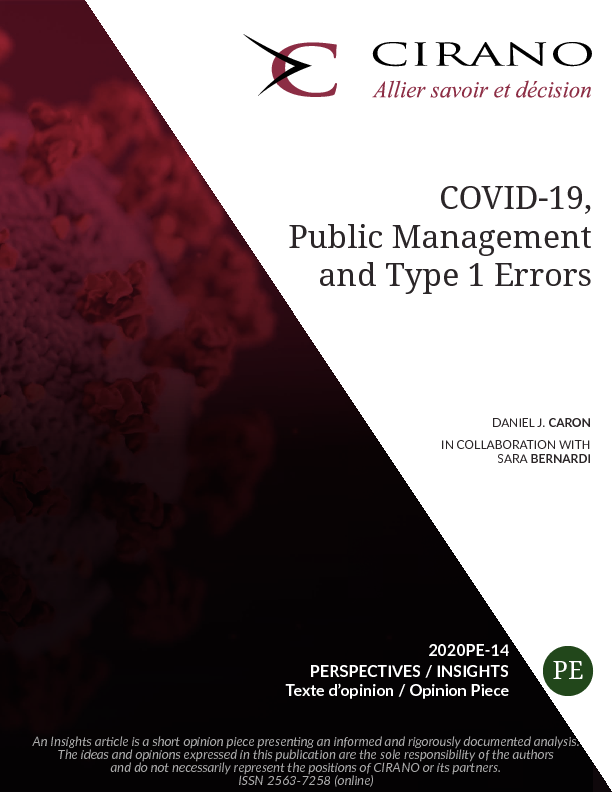COVID-19, Public Management and Type 1 Errors
The crisis triggered by the novel COVID-19 coronavirus has rekindled the debate about the protection of personal information at least twice: through population tracking by means of cellular-based data and by way of data disclosure via data sharing within the healthcare network. Such a situation enables us to realistically test – i.e. prove – the reliability of some of our information governance instruments or mechanisms and their level of integration. As a matter of fact, a deficiency of integration between those informational instruments and a lack of consistency can give rise to circumstances where their respective objectives may become conflicting, and which may cause bad decisions (or type 1 errors). This is illustratively the case when a first law is enacted to promote the public good while a second law also designed to foster the public well-being is, to be effective, contingent on the implementation of measures that contravene or breach the first. For instance, let us consider the Privacy Act of Canada (R.S.C., 1985, c. P-21) and the Public Health Act of Quebec (CQLR c. S-2.2). While both of these laws are for the fostering of public good, certain provisions of the Public Health Act of Quebec (CQLR c. S-2.2), to be effective, require that they infringe or encroach on the objectives of the Privacy Act of Canada (R.S.C., 1985, c. P-21). What can be the consequences of such incompatible or contradictory situations?




